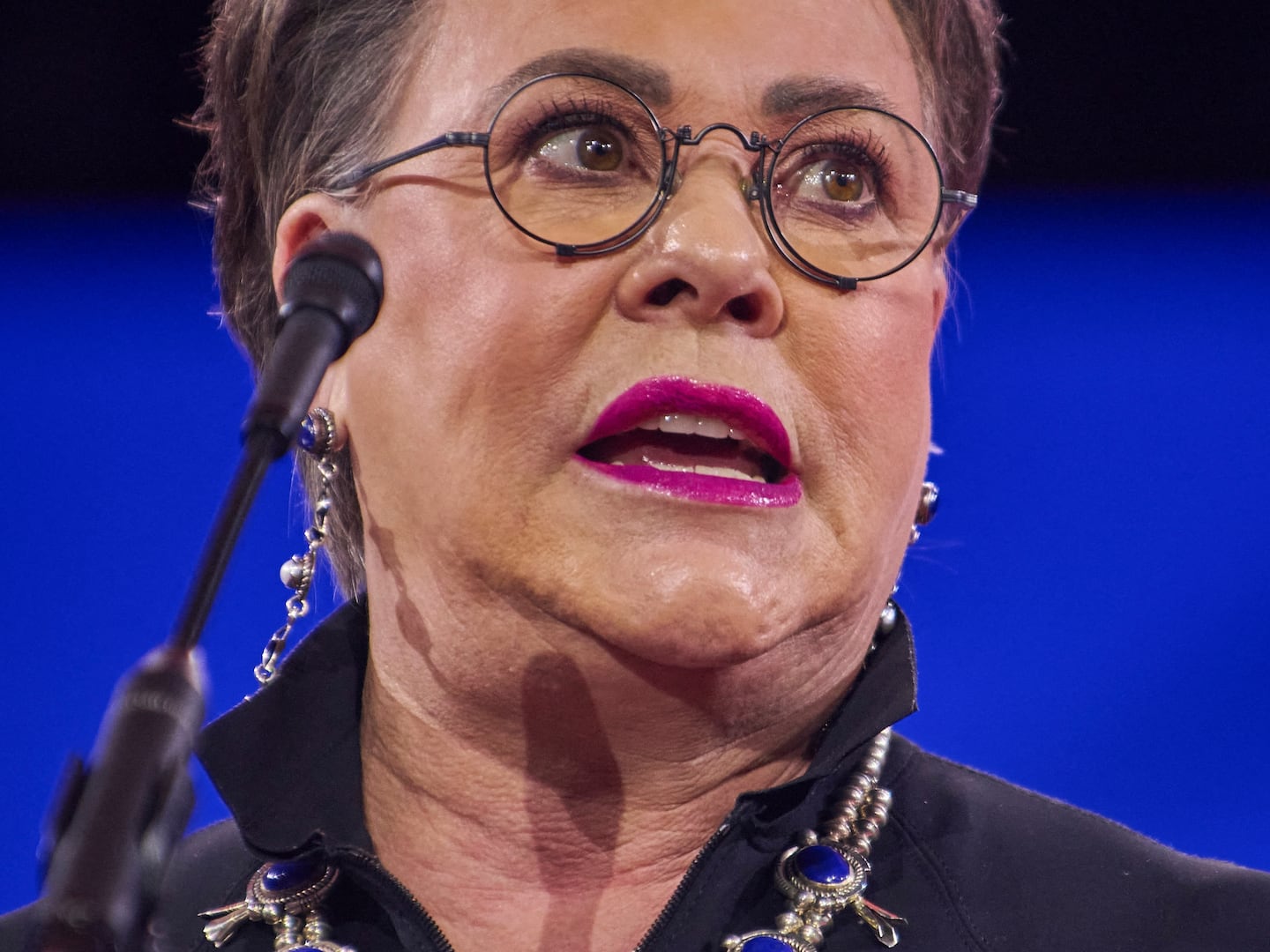Zaina Erhaim had traveled to Britain before without incident, most recently in April where she collected Index on Censorship’s Freedom of Expression Journalism award for her reports cataloguing the depredations of the Assad regime in her native Syria. But when she landed at Heathrow airport late last month, she discovered just how far those depredations carry.
Her passport was confiscated by UK Border Agency officers who questioned her, as she held her 9-month-old infant in arms, for several hours in an area she quaintly describes as “for suspicious people.”
Finally, she was informed that her passport was reported as “stolen” and was therefore being sent back to Damascus. “It is the property of the Syrian government,” one officer told her. “You have to coordinate with them.”
“Do you really know which government we’re speaking about?” Erhaim asked.
“Then I collapsed,” she said in an interview with The Daily Beast. “I was really angry. It was 2 a.m. My baby was in my hands.”
It was only by chance that Erhaim was lawfully let in, owing to her possession of a second, valid passport when she landed. That one was nine years old but had no blank spaces or pages left for further immigration stamps or visa inserts.
“So I applied for a new passport at the Syrian consulate in Istanbul and received it in April.” She has since used the new one to travel to the UK, Norway, Spain and Germany, all without problems.
Erhaim’s case, which she describes as one of a “dictator versus independent journalists” has become a minor cause célèbre in liberal quarters in the UK, albeit without much media fanfare, as the Guardian’s Roy Greenslade has pointed out.

Yet the victim here is no ordinary exile. She was educated in international journalism at City University London, where she obtained her Master’s Degree (and studied under Greenslade, as it happens).
Erhaim is also a recipient of the Chevening Award, which is underwritten by Britain’s Foreign and Commonwealth Office and bestowed upon “future leaders, influencers and decision-makers.” She also worked for the BBC for a year, traveling back and forth from rebel-held Aleppo. Now she is a project coordinator for the Institute for War and Peace Reporting in London.
In fact, she was coming to Britain to participate in a discussion about the perils of being a woman frontline journalist in a war zone, a discussion she was happy to have.
One would think that the foregoing curriculum vitae would give her testimony about the legitimacy of her travel documents more weight than that of a sanctioned mass murderer who gasses people in a capital city. And how has the UK Home Office responded to her case?
“They haven’t,” Erhaim said. “I’m not dealing with anyone, to be frank. I'm only getting the news from you guys, journalists. No one from the government has contacted me. At some point, I was really scared when he was speaking about the regime as a legitimate government — they might deport me to Damascus. What would I do then?”
Indeed, she informed the Border Agency officers that the “stolen” document was itself stamped by their colleagues five months earlier. She was told that this was before Damascus issued a notice about its alleged theft.
“Zaina is somebody who is very well respected,” says Rebecca Vincent, director of the London bureau of Reporters Without Borders, which also awarded Erhaim its annual prize in 2015. “She’s well connected and well known to the British authorities. The fact that this has happened to her is appalling. It sends a worrying signal about the UK government’s priorities, its commitment to press freedom, and its broader policy toward Syria.”
Vincent added that a group of London-based NGOs has requested an urgent meeting with the Home Office. To date, they’ve received no response.
The Daily Beast sheepishly inquired if Erhaim has even bothered talking with the regime about all this. “Maybe in Sednaya prison they’d negotiate this issue with me,” she answered, referring to the notorious detention facility in Damascus where, even before the Syrian uprising in 2011, political prisoners were known to have been tortured and murdered.






